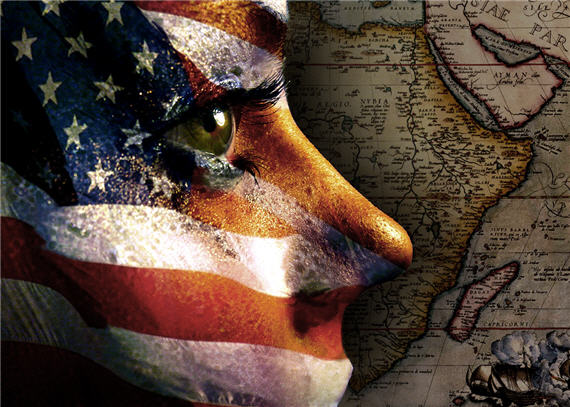
The United States and our transatlantic partners are rightly working together to address the very real problems off the coast of East Africa. But it’s time for us to start paying more attention to West Africa, which is on the verge of catastrophe that would have far more negative impact our our interests.
This is an economically and politically distressed area of more than 250 million people. The question is not whether these states will fail but how ugly will it be and how much time do we have before it gets too hot to handle.
UNICEF estimates more than 200,000 children are trafficked through this area each year. Other reports indicate that more than 5,000 women are smuggled illegally. Slavery is alive and well there.
Al Qaeda in the Islamic Maghreb is active in the region. So are some of the more well known terrorist groups such as Hamas, Hezbollah, and the Revolutionary Armed Forces of Columbia (FARC). They are all taking advantage of the growing opportunities anarchy in the region presents.
The flow of illegal drugs from South America through West Africa generates billions of dollars a year for the terrorist groups and the drug cartels of South and Central America. Nearly all of these illegal narcotics, mostly cocaine, are heading toward our Allied partners in Europe. Illegal immigration is taking the same route. If Europe wants to see how this is going to play out, they need look no further than the border between the United States and Mexico.
But it is not just Europe’s problem. If the drastic human rights violations or the drugs do not garner the public’s attention in the States, maybe the fact we receive 18 percent of our crude oil and 14 percent of our natural gas from this very same region will raise some eyebrows.
Then there is the fishing issue. Fishing corporations from Eastern nations (some of whom are U.S. partners) are stealing the West Africans’ fish to the tune of $1 billion a year. The old adage says “Feed a man a fish, feed him for a day; teach a man to fish, feed him for life.” Steal a man’s fish and create hate, discontent and eventually, someone who cannot make a living honestly.
Environmental crime is rampant in this region. West Africa receives almost 100,000 tons of e-waste a year, little of which is recycled or reused.
So, what can we do? The United States, NATO, and other allies are already spread thin with the great work being done in Afghanistan and Iraq. But if we put forth reasonable efforts now, we may be able to avoid another failed state catastrophe which, one way or another, will cost us billions.
First, we need to develop “buy in” from the governments and leaders in the region. We need a combined security plan which is at least remotely legitimate. It is much more cost effective to talk through issues and build relationships than it is to build and employ invasion forces. We need to determine what local governments require to run relatively legitimate and functioning states then convince them this is an extremely lucrative and just endeavor! We need to develop a plan together and assist in implementation.
We are already doing it on the water: Our Sixth Fleet and NATO partners are working to improve maritime security in the area, but we need a few more ships and more steaming dollars. We can show presence, concern and commitment via a modest naval and coast guard force while our diplomats and business leaders work on a bonding relationship based upon solid, legitimate economics and a viable security plan which “fits” the diverse culture of West Africa. The more West Africa shows up on the front page now, the less we will have to pay to fix the problems in the future. The goal is to establish a viable security environment which allows for a working society. We cannot afford nor should we strive for “utopia.” If we can help them develop a working society which meets all our needs, we can avoid another messy, expensive, deadly, asymmetrical and unpopular conflict.
Image: africa-usa.jpg
